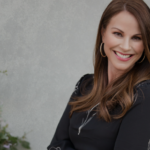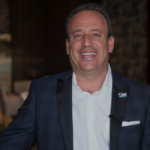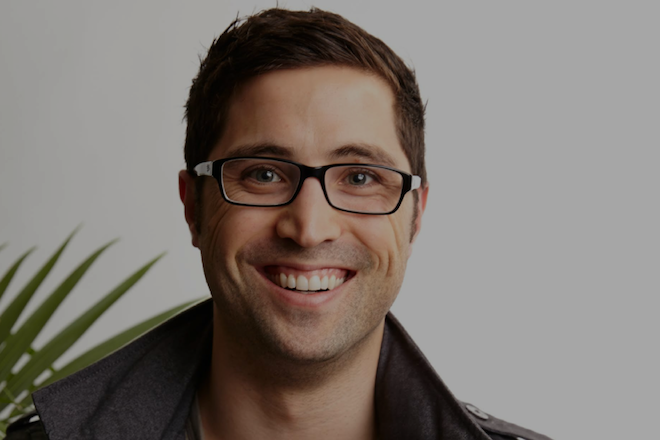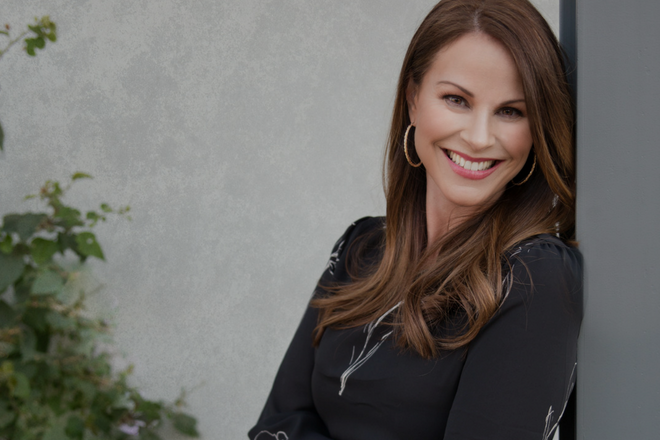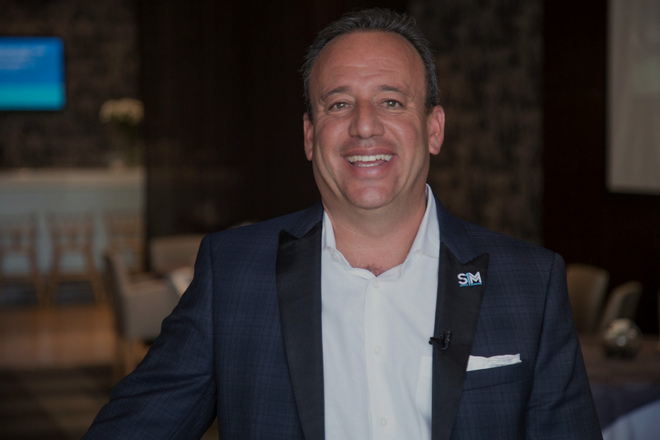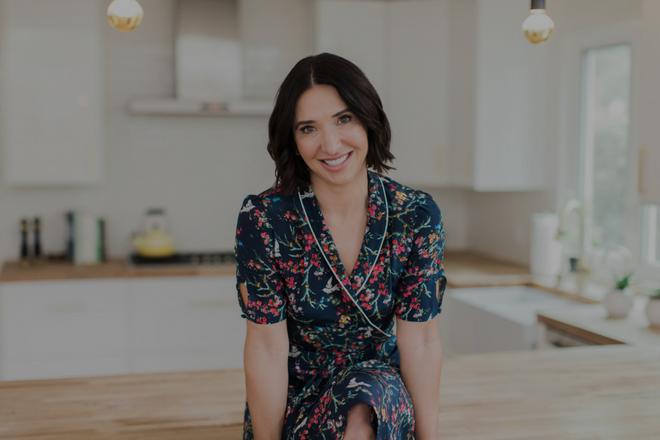“This is not how life’s supposed to go.’ I was living a half-lived life. I was living someone else’s life and gratefully hitting rock bottom when you’re just so depressed and you’re not laughing. There’s no joy. You can finally say ‘Enough is enough.’ I feel like ‘Enough is enough’ is usually the honest catalyst that causes you to change.”
Andrew Thomas – Co-Founder of SkyBell Video Doorbell; Understanding that you’re worthy; Becoming mindful; the power of intention; Crowdfunding; Validating; the Internet of Things.
Segment 1: (Length :04:00) – General Updates; Introduction to Andrew Thomas and his journey as an entrepreneur, Quitting his old life to start a new on; on becoming a tech founder to getting featured in Tech Crunch.
Andrew’s finer points:
The journey, like you said, was not very traditional. It as not very deliberate too.
“I graduated from USC and I ended up getting a job at Google but I was able to work remotely from southern California.”
“After I graduated from UC I moved back and I was getting bored and so I ended up moving to China because my friend from college said ‘You know it’d be fun if you moved out here.’ I ended up moving to China.”
“I did my work from there and then taught myself how to do some SEO work and got involved in tech that way.”
“They story kind of starts when I went to USC I was a finance major. I was actually always thought that I was going to be a financial planner. That’s what my dad did and I just thought that that was the career I would end up in but I was fascinated by technology, especially having gotten that job at Google.”
“I did that job for Google. I lived in China for a year and I just followed other entrepreneurs who were living in China just feeding my curiosities and that’s when I started falling in love with entrepreneurship. I would spend time with somebody who’s exporting tea or importing steel from the US to China or people starting online businesses and just fascinated by that.”
“I moved back to America a year later. I was around 23 and I started doing some SEO web design on the side but the pressure and the calling to go into financial planning built up and so around 23-24 I got my licenses and I started working in financial planning.”
Over the next two years I just got this overwhelming anxiety. It was this sense of living somebody else's life and I couldn't articulate that. I just kind of felt it and that expresses itself as depression.
“You kind of fall into this thing where you start putting all of that anxiety on you and you internalize it and you say ‘I am flawed. I am not a good person. I’m not smart enough.’ Unhappiness just seeps in until you don’t even know where you’re at any more and that’s where it came to at 26.”
“I was a financial planner. I was depressed. I was in a relationship that just wasn’t very healthy for either one of us. We weren’t serving each other in a healthy way and it just became too much.”
“Then the anxiety started just crescendoing and I ended up having a anxiety attack in the elevator on the way up to my office one day and it just got to be too much. The story within the story is that the whole time I was a financial planner I still loved technology. I would go to TechCrunch almost every day and read about startups and entrepreneurship and I would see people like Aaron Levie getting covered and I’m like ‘Man that guy went to USC and he’s super successful. I went to USC and I’m kind of here.'”
“Clearly it’s ‘I’m not fit for that world. I’ll never be on TechCrunch. I’ll never be a tech founder. They have something that I don’t.’ That was sort of the theme of that time. I ended up keeping one of my SEO clients and I worked with them on the side while doing financial planning and I realized that I was happen when I was in that meeting talking to them and the 80% of my life as a financial planner I was just unhappy with.”
“Finally my health started getting bad. My heart rate was up to like 115 beats a minute. It was just terrible and so finally I said “Enough is enough.” I’d gain enough strength. I was just too tired of being depressed and I gave it all up and I found someone I trusted at my office and I gave all of my clients to him and then I left and I just jumped.”
. I said 'This is not how life's supposed to go.' I was living a half-lived life. I was living someone else's life and gratefully hitting rock bottom when you're just so depressed and you're not laughing. There's no joy. You can finally say 'Enough is enough.' I feel like 'Enough is enough' is usually the honest catalyst that causes you to change.
“From there it was like you said, getting back to basics, like getting to know yourself, just diving in but when you’re whole subconscious is so negative you’re not even controlling your conscious thoughts anymore so you have to then go undo all of those subconscious thoughts to retrain your subconscious and that’s the messy work.”
“From 26 to 28 it was all working on myself. I kept some clients on the side and was making an income but my main job at that time was working on myself and it was self-betterment, meditation, quantum physics, energy, law of attraction, Abraham Hicks, Dr. Wayne Dyer, Kute Blackson who you guys had on probably 20 episodes ago which is a fantastic episode.”
“He was huge. I used to listen to his stuff in a documentary called ‘Three Magic Words’ that really helped change my life. I just sort of unwound all of those subconscious thoughts. I dove into shame big time. A big book called ‘Healing The Shame That Binds You.’ I think it’s by Travis Bradshaw or Terry Bradshaw. That one was huge too.”
Over two years I learned that I am worthy of my dreams. My dream is to be in tech and I did have the skills and I could believe in myself and trust the skills and trust the universe.
“I told my roommates at the time. I said ‘No more. I’m not going out. I’m going to be a tech founder.’ I started reading all of the tech books and all these business books and then 4 months later, Joe, my cofounder now comes to me with the idea for a video doorbell.”
“I was 28. That was in 2013 and I said “Wow this is a fantastic idea. Let’s do it.” We couldn’t get funding. We didn’t take no for an answer so we went to Indiegogo and we said “Let’s do this thing.”
“I created a campaign. It was crazy. This was like 100 hour a week because we started building the product and then we also did the Indiegogo campaign which is basically another full time job.”
“It was just crushing it. That was the hustle, right? “We found something to be excited about. Let’s hustle now.” It was a hit right away. The first night we were on enGadget. The second day I think we were on TechZulu. Then the third day and this was one of the biggest moments of my life is on the third day we were covered by TechCrunch and I start reading the article and they mention my name and they got my photo on TechCrunch.”
I was like 'Boom.' Exactly. It was like 'Holy shit.' I went from being a depressed financial planner three years ago saying 'I will never be on TechCrunch' to being on TechCrunch and it was affirming everything that I ever believed or was believing at the time to turn it all around. Then I just felt free, was just like 'Okay. It's on.'
“Five days later in that campaign we were on Fast Company and we raised a hundred grand in five days and then that was it. It snowballed. We ended up raising six hundred grand in thirty days for SkyBell, our idea of this video doorbell that people answer from a smartphone. We didn’t even know if other people were going to like it and it was clear that they did.”
“It was a life changing two or three years to get out of that depression and then the two or three months of that Indiegogo campaign were just truly excited. We’re now three years from that Indiegogo campaign and have grown this company like you said without VC’s and just continuing to take less traditional paths and it’s exciting to be able to talk about that.”
“the story has been sort of keeping an eye on where you’re at as a person and all of the energy that you put in to becoming a better person or becoming a better expression of yourself only helps you become a better founder or better entrepreneur or lead to more success.”
Segment 2: (Length :08:00) – Talking with Andrew Thomas; Understanding that you’re worthy; Getting to know yourself; the power of intention.
Andrew’s finer points:
Shame is the biggest I guess culprit of us not feeling worthy and unfortunately it's also one of the hardest things to do. Once you dive into the thoughts around why you feel like you're not worthy of love or validation or you're just not good enough, that's an intrinsic flaw. It's hard to get that validation externally to undo that internal subconscious belief.
“Meditation might be a great way. I like what you said, ‘Get to know yourself.’ Knowing yourself is really the key because I didn’t take the time to really honestly evaluate if financial planning was right for me or if that’s what I really wanted to do.”
“I’m the founder of SkyBell and it’s going really well but I always try to check in because what if in two years I now have a calling and I need to do something else? If I’m just like head down, always hustling, I’m not going to be able to have that awareness that I might need to shift or I might need to do something else.”
“Find time for thinking. Actually schedule it. Schedule a half an hour, an hour across your week just to think about how things are going or meditate or have a yoga practice.”
Find whatever it is for you that gets you out of your mind and into that state of awareness.
“Another thing that I’ve done recently especially and it’s easy to be on podcasts like this and talk about how great things are. It’s always two steps forward, one step back. We’re always growing. We’re always learning.”
“I had a tough week last week so what I did this time is I went out and tried to serve others. I live in San Francisco now. There’s a lot of homeless people. I just went out and got some food and just on my way home gave it to three or four people, gave a couple people five bucks. That was it. I did not solve a big problem but the idea of getting out of my own head and into service was extremely good for me to kind of reflect on where I’m at.”
“I found myself wanted more and more and more by serving others and giving more. It helped me kind of undo that energy and get back saying “What do I want? How best can I serve? Where am I going?” I’d say service, meditation, slowing down, making time to think, and then books. I got through my journey by listening to people like Abraham Hicks, Dr. Wayne Dyer. Brené Brown is fantastic. She’s so popular for a reason. Her stuff is so good. She’s an expert on shame but she makes it so human and accessible which is what you need when you’re talking about shame so I would recommend to people play that whether you’re happy or depressed, listen to Brené Brown.”
“It’s kind of like working out. You can’t just exercise once you get overweight. You’ve got to have fitness throughout your life so you’ve got to do this stuff while you’re feeling good too just so you can keep elevating.”
“I’m allowing things to unfold in a way that will help me without me dictating exactly how it needs to unfold. That’s something that I still battle with all the time. Sometimes I want to be very deliberate and I want this now but when I fall into intention I feel like I’m working on a collaborative basis.”
“I learned about intention during that process from age 26 to 28 when I was reading about the law of attraction and energy and the power of thought and what we focus on expands: those ideas. It just has seemed to come true.”
If you don't believe you're worthy of it, it's not going to come. You're just not vibrating with those outcomes.
“I got rid of all of that and then like you said it’s not enough to just do that. Now you’ve got to use your intentions and your focus. There’s a three or four minute audio clip that I have by Elbert Hubbard. It’s kind of an old classic recording about the power of intention and I listened to that every morning for probably a year and a half and it just helped me stay focused on intention and then I just started setting intentions. I told my roommates. I said “Guys. I’m going to be a startup founder. This is- I can’t go out to the bars. Like I’m done. Dating is kind of a distraction right now. I need to stay focused on this.'”
“I put all of my energy into that and then sure enough the idea came four months later and I definitely was like “Where’s the idea already?” You have to be a little bit patient but the idea came and it’s been wonderful.”
“Then I think a year and a half ago I told my girlfriend that I really wanted to start writing on Inc. and Forbes and these types of publications because I wanted to write to the 26-year-old version of myself who sat in that financial planning office reading those publications and says “I’m not good enough and I’m not smart enough.'”
“I told her “I’m going to end up, I’m going to write on these publications. I will be a contributor at Inc. and Huffington Post” and then six months later I’m a contributor at Ink and Huffington Post. I am a huge fan of this and it involves, like you said, daily work, daily reminders of what your intentions are and so for that I’ve got a vision board. I’m looking at it right now and there’s pictures of the trips I want to take. There’s pictures of people whose energies I like to embody like James Brown is up there. Joseph Gordon Levitt is up there. George Clinton is on my vision board.”
I find inspiration in a lot of different places and it helps me fuel that energy of staying focused on my intent and then I've got the literal things that I want to have show up in my life and that's written in the form of a success statement. I write about the future, like a year from now, I write in the present tense.
Segment 3: (Length :10:00) – Crowdfunding with Indiegogo; the Internet of Things (IoT); Leveraging partnerships; Alternatives to VC funding; Validating your product via crowdfunding.
Andrew’s finer points:
When we started SkyBell three years ago with that Indiegogo campaign there wasn't a lot of Internet of Things stuff.
“The idea that you can talk a burglar off your porch before they come in your house has been huge and that’s happened. People have used SkyBell to prevent robberies before they happen by knowing that there was a burglar at their front door and saying ‘Hey can I help you? We’re inside cooking dinner’ and then that burglar runs and leaves.”
“We wanted just to help people and we thought that this was a cool product to do it. Then the Internet of Things has just unfolded so any listeners out there who are curious about the Internet of Things I encourage you to start reading about it. I believe strongly it is the third wave of the internet.”
“In terms of SkyBell we had this great product and we looked at the market and we have a competitor in this space and the competitor was really strong with consumer marketing. It was investing a lot of money in that direction in the B to C space. We made a deliberate decision to build our video platform up significantly and robust enough so that we could send our video to partner apps.”
“We actually looked at the home security companies as a way to distribute our product and to align with their infrastructure, their distribution and provide value to people who already have that sense of home security.”
“We just found that the congruencies with these bigger companies would be a cleaner path than selling one video doorbell to fifty thousand customers. It worked perfectly. We shifted and we went a little more B to B.”
“We went the other route and we didn’t need to raise as much money and so we didn’t have to go to VC’s and we could get as much reach as our competitor could with a quarter of the amount of raised money, raised capital.”
“We could utilize our customers’ great brands. HoneyWell is one of the best brands in the world. That’s the route we took and then from here it’s a matter of ‘Great. Everybody’s got smart products. Where do we go from here? How do we connect them all in a way that makes sense? But how do we start making logical decisions from that data?'”
“One thing that we’re working on is concepts around how do we make entire neighborhoods safer and more secure and smarter and how does that tie into the other parts of our lives like ‘smart city’ and municipalities? For SkyBell it’s been a hardware story up until this point and I think from here on out it’s going to be a hardware plus a software or hardware plus a data proliferation strategy.”
“I think VC’s are fantastic. There’s such a big, big reason for people to use them and there’s also reasons why not to. We kind of just looked at different alternatives this entire way but what really kickstarted that for us was our crowd funding campaign and realizing that when you have an idea you need to go get some amount of funding.”
“Usually for a tech startup or more traditional start that’s a seed investment from an angel investor. Maybe it’s five hundred thousand dollars and maybe they ask for thirty percent of your company. That’s a big dilution event. The reason they want all that dilution is because they tell you. They say ‘You don’t have any customers yet. You don’t have any validation for your idea. You have no press or brand recognition. You’ve got no current capital. You’ve got no customer validation or customer feedback around your idea.'”
You end up as an entrepreneur giving up a large chunk of your business for this first five hundred thousand dollar cash infusion. Well if you go to Indiegogo you put your idea up there, and like we did, suddenly after thirty days we have six hundred grand so that solves the no money problem, four thousand two hundred and fifty people bought or funded or bought a perk, right? They're basically customers. They're owed a SkyBell.
“There’s our customer problem. Check that box off. Then there’s no press? I mean in the first week we were covered on in Gadget, TechCrunch, and Fast Company called us an Indiegogo sensation so you’ve now got press and brand”
“Then customer feedback. We had almost a thousand emails or Facebook comments or Indiegogo page comments from customers saying “I want this feature. I want you to add this feature. I don’t want this feature. This thing is not going to work for me. Oh did you account for nighttime and night vision?'”
“I sat back and just crossed off all the things that people didn’t want and added all the things that people did want. We knew now. We had so much data. We could tell an investor after our campaign “We have tons of data now on our customers.'”
“Then the fifth thing is the validation of the idea. If four thousand two hundred and fifty people give you money for a product that hasn’t even been made yet I’m pretty sure that you can assume that the idea is good. Now, after your crowd funding campaign you can go back to the next investor and say ‘Well now we have six hundred thousand dollars. We have sales. We have customers. We have press. We have validation for our idea and we have feedback.'”
Segment 4: (Length :03:00) – Hustler Thought of the Day:
One thing I’ve learned is you don’t have to take the traditional path. Entrepreneurs shouldn’t forget about jumping on planes to cultivate big B2B deals instead of just defaulting to running ad campaigns on Google and Facebook. Success comes to those who can get creative, can see multiple paths to profitability, and invest in those paths.” - Andrew Thomas
GENERAL NOTES:
Andrew Thomas – Co-Founder of SkyBell Video Doorbell & Mindful Entrepreneur
- Andrew is a co-founder and Chief Revenue Officer of the very innovative company and product called SkyBell Video Doorbell, where he directs business development and platform strategy.
- SkyBell is a video doorbell that allows you to see who’s at your door from a smartphone.
- Andrew has lead partnerships with Honeywell, Alarm.com, Nest, Amazon and more.
- Andrew is a crowdfunding and Internet of Things expert, writes for Inc.com, Forbes, Huffington Post and Entrepreneur.com.
- Context: At age 26 (six years ago) I was a financial planner, depressed, in a bad relationship. hit rock-bottom, and bounced back. He quit his job, gave his clients away, broke up with his girlfriend and dove deep into mindfulness, meditation, self-betterment, the power of intention, abundance, etc. He then spent 2 years unwinding his “shame” and limiting beliefs.
- At 28, he told his roommates he was going to be a tech founder. Four months later, his current co-founder brought him the idea for SkyBell, and they launched it three months after that on Indiegogo. We’ll let him tell us what happened after that.
- SkyBell has also never taken a dime from traditional VC money and we’ll discuss that as well. You don’t have to take the traditional path.
###
